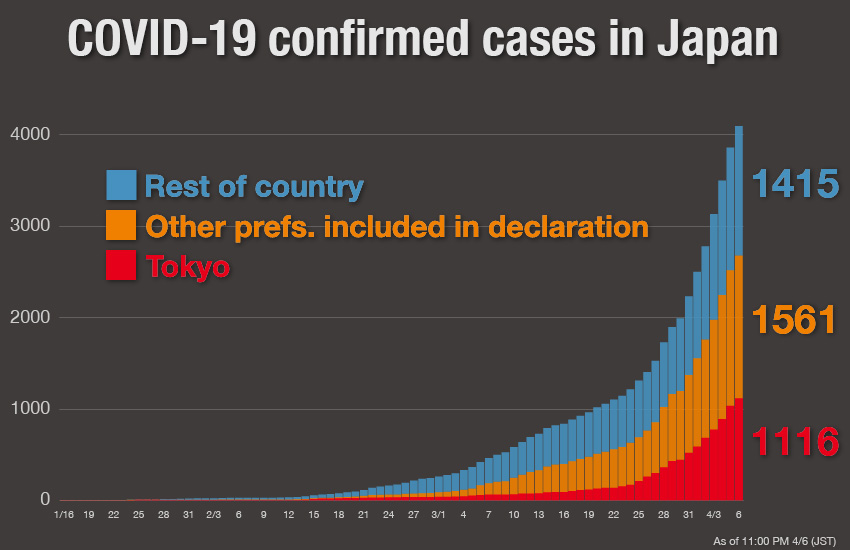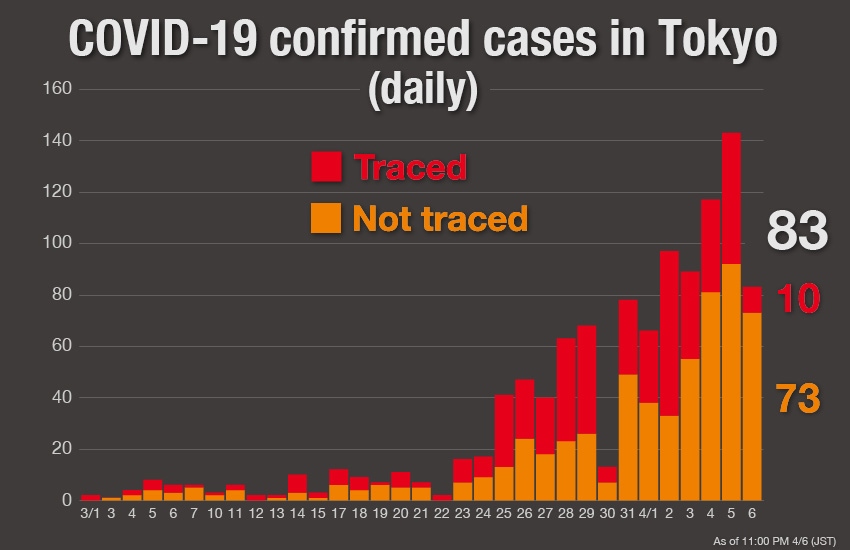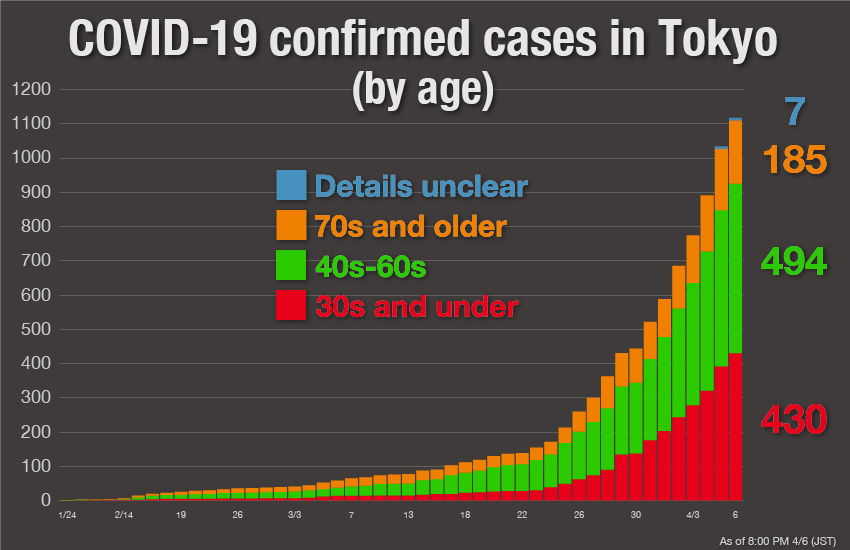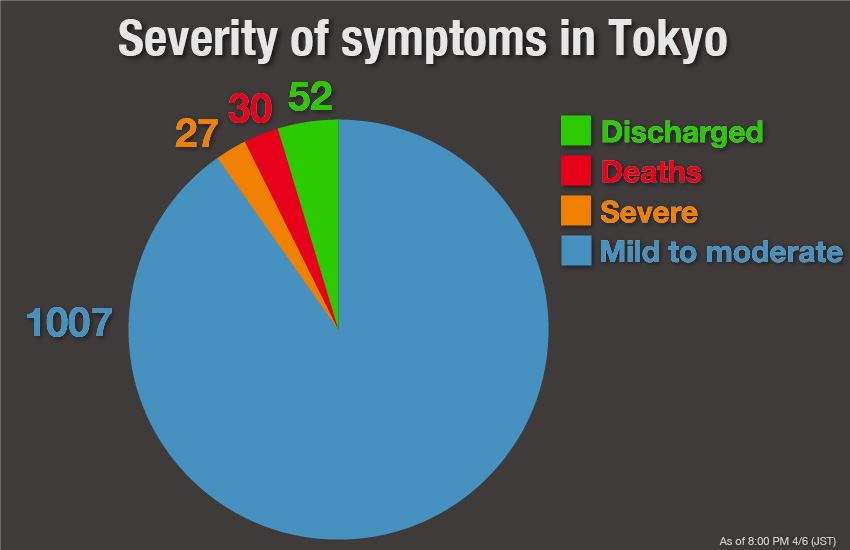Across Japan, there are now more than 4,100 confirmed infections, excluding 712 from the Diamond Princess cruise ship. Over 1,100 cases, or about a quarter of the total, are from Tokyo.

The Metropolitan Government says the number of cases with unknown routes of infection is growing.

Most of the cases in Tokyo are people in their 60s or younger. Those in their 40s to 60s account for nearly 45% of the total, followed by those in their 30s or younger who account for 38.5%.
People in their 30s account for 20% of the total, the most of any age range.

90% of patients have experienced mild to moderate symptoms, with severe symptoms emerging in 2.42% of cases. 2.69% of cases have led to death.
Experts say the prevalence of mild to moderate cases indicates the possibility of people unknowingly spreading the virus.

Kaku Mitsuo, Emeritus Professor at Tohoku University's Graduate School of Medicine, is an infection control and prevention specialist.
He says the emergency declaration’s one-month timeline will be crucial in determining whether Japan can avoid an epidemiological overshoot, an exponential increase of cases that exceeds the capacity of the country’s healthcare system, like those seen in the United States and Europe.
"This is just one month," he says. “It may feel long but if we can endure, the limitations on our daily life and the effects on the economy will be lifted and the situation will improve."
For the emergency declaration to be a success, Kaku says people must reduce person-to-person contact by 80% and take basic measures such as wearing masks, washing hands, and avoiding crowded places.
He adds that people across Japan, not just in the seven prefectures listed in the declaration, should stay home to avoid spreading the virus.


